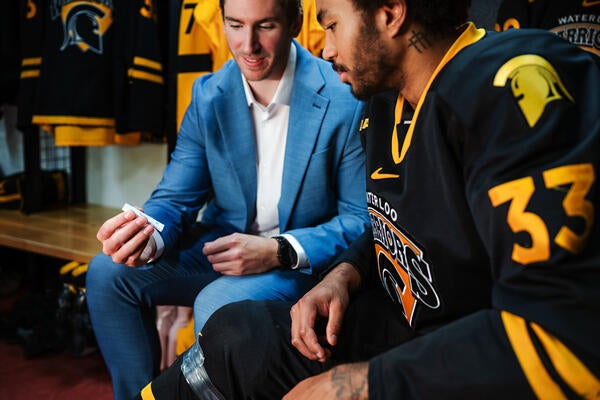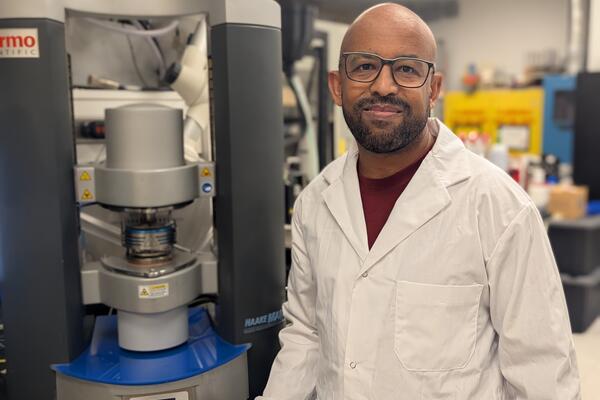
Waterloo student demystifies medical information with help from AI
New web platform makes medical information more accessible to patients

New web platform makes medical information more accessible to patients
By Media RelationsMedInclude is a new web platform which makes medical information more accessible for patients. The tool transcribes doctor’s notes in lay terms in real time and makes them available in a patient’s mother-tongue so they can more easily understand and take part in their medical care and decisions.
Seun Adetunji, a student of the Master of Business, Entrepreneurship and Technology program at the University of Waterloo is the founder of MedInclude. Her goal with the company is to make medical information more accessible for patients.
“In healthcare settings, most patients want to have more agency in their healthcare decisions,” said Adetunji. “But most medical information is shared with a lot of medical jargon and complex words. This leaves a big communications gap that I hope MedInclude will address.”
Research has shown that this is a significant issue with 50 per cent of patients from a recent study indicating that they do not understand their doctor, while another study indicated that up to 80 per cent of medical information is forgotten immediately after a consultation.
“Unfortunately, this communication gap disproportionately affects Black, Indigenous, Latinx, and other People of Colour and contributes to systemic health inequities,” said Adetunji.
The MedInclude team are launching their first pilot of this new platform in partnership with KidsAbility. The Pilot goes live on May 29, 2023.
“KidsAbility is focused on reducing barriers for families, including language barriers faced by parents and caregivers when accessing our written materials,” said Director of Innovation and Research, Brendan Wylie-Toal. “These resources are predominantly available in English, limiting accessibility for non-English speakers. Our goal is to ensure inclusivity and enhance the experience for every family we serve.
By introducing a method to transcribe and translate written information in real-time, we can significantly improve equity in the services we provide to our families. Ultimately, this will lead to a more inclusive and enhanced experience for all," said Wylie-Toal.
The pilot will run until August 2023 and Adetunji hopes the results will be the impetus for a more widespread adaptation of MedInclude.
A member of Velocity’s digital creator space, MedInclude has placed in the semi-finals of two Velocity pitch competitions. Adetunji has received financial support from the GreenHouse incubator at the University of Waterloo. She also received $30,000 from the Medical Innovation Xchange and credits Tania Del Matto at GreenHouse and MBET faculty member, David Rose with her success with the company so far.

Read more
New medical device removes the guesswork from concussion screening in contact sports using only saliva

Waterloo researcher Dr. Tizazu Mekonnen stands next to a rheometer, which is used to test the flow properties of hydrogels. (University of Waterloo)
Read more
Plant-based material developed by Waterloo researchers absorbs like commercial plastics used in products like disposable diapers - but breaks down in months, not centuries

Read more
Here are the people and events behind some of this year’s most compelling Waterloo stories
The University of Waterloo acknowledges that much of our work takes place on the traditional territory of the Neutral, Anishinaabeg, and Haudenosaunee peoples. Our main campus is situated on the Haldimand Tract, the land granted to the Six Nations that includes six miles on each side of the Grand River. Our active work toward reconciliation takes place across our campuses through research, learning, teaching, and community building, and is co-ordinated within the Office of Indigenous Relations.